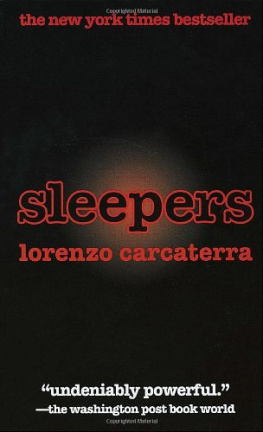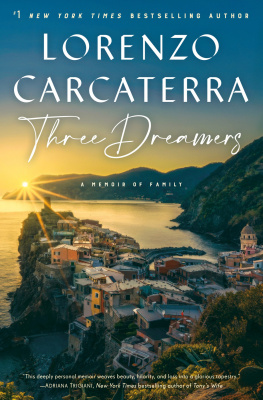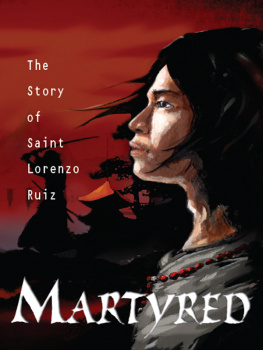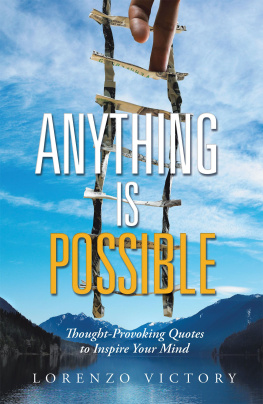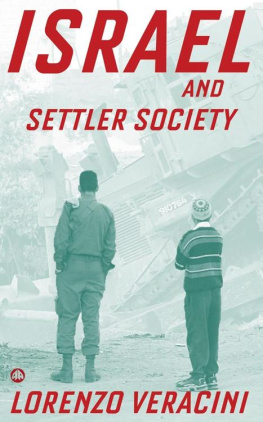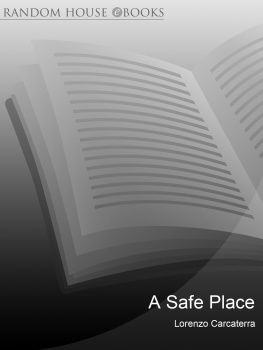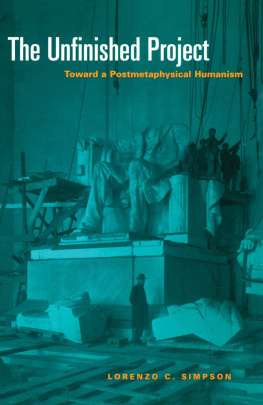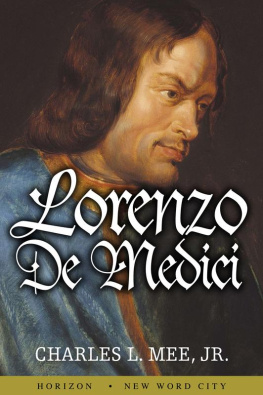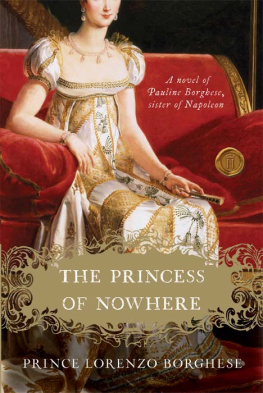Lorenzo Carcaterra - Street Boys
Here you can read online Lorenzo Carcaterra - Street Boys full text of the book (entire story) in english for free. Download pdf and epub, get meaning, cover and reviews about this ebook. year: 2003, publisher: Fawcett, genre: Detective and thriller. Description of the work, (preface) as well as reviews are available. Best literature library LitArk.com created for fans of good reading and offers a wide selection of genres:
Romance novel
Science fiction
Adventure
Detective
Science
History
Home and family
Prose
Art
Politics
Computer
Non-fiction
Religion
Business
Children
Humor
Choose a favorite category and find really read worthwhile books. Enjoy immersion in the world of imagination, feel the emotions of the characters or learn something new for yourself, make an fascinating discovery.

- Book:Street Boys
- Author:
- Publisher:Fawcett
- Genre:
- Year:2003
- Rating:5 / 5
- Favourites:Add to favourites
- Your mark:
- 100
- 1
- 2
- 3
- 4
- 5
Street Boys: summary, description and annotation
We offer to read an annotation, description, summary or preface (depends on what the author of the book "Street Boys" wrote himself). If you haven't found the necessary information about the book — write in the comments, we will try to find it.
Street Boys — read online for free the complete book (whole text) full work
Below is the text of the book, divided by pages. System saving the place of the last page read, allows you to conveniently read the book "Street Boys" online for free, without having to search again every time where you left off. Put a bookmark, and you can go to the page where you finished reading at any time.
Font size:
Interval:
Bookmark:
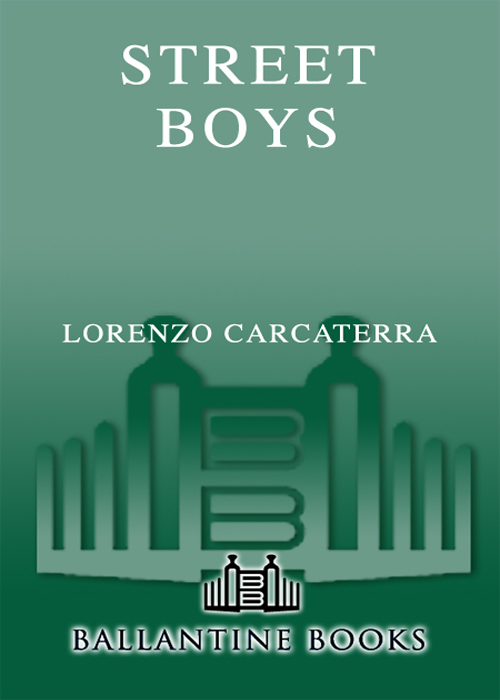
LORENZO
CARCATERRA
STREET
BOYS
BALLANTINE BOOKS NEW YORK
Contents
This ones for Kate.
We talk just like lions
But we sacrifice like lambs
ROUND HERE,
COUNTING CROWS
ACKNOWLEDGMENTS
Ive always wanted to write a novel about the war and the brave young men and women of Naples. There are many who have helped make that possible. I would like to thank my mother, Raffaela, and my Nonna Maria for sharing their stories of pain and loss. And to my family and friends in Italy (especially Paolo Murino and Vincent Cerbone) who opened their hearts and showed me the city of Naples and its people in ways I would never have been able to see on my own. Ai sempre un posto nel mio cuoro.
Warm thanks must also be sent to Peter Gethers, hands down the best editor in the book business, and to Gina Centrello, a terrific publisher whose energy and enthusiasm help fuel each of my stories. And to the rest of the Ballantine posseEd, Ann, Kim, Marie, Leyla, Claudia and the best sales force on the planetthank you.
A writer is only as good as the team around him, and I have the best. Owen, Joni, Rob, Suzanne and Tracy at William Morris cover me like a warm blanket. Lou Pitt puts up with the phone calls and the complaints, all the while making sure that what needs to be done gets done. Robert Offer delivers comfort and hard work and always has the right answer. And the great Jake Bloom has never wavered in his love and care. Hes the father I wish I had and the friend I will always have.
To Lorenzo Di Bonaventura, thanks for the trust and the friendship. This novel is yours as much as it is mine. To Courtenay Valenti and Steve Reuther for loving this story as much as I do, and to Paula Weinstein and Barry Levinson for their help.
To my friends who put up with the calls and always leave me with a smileHank Gallo, Dr. George, Mr. G., Steve Allie, William Diehl, Bobby G., Captain Joe, Eric and Peggy, Ida and Anthony, Peter Giuliano, Rocco, Fast Freddie, Sonny, Adriana, Rabbi Liz, Sister K, Michael C., Judge Leslie Crocker Snydera heartfelt thank you. Uncle Robert and Aunt Jane have earned a special place in my heart. And it is always a pleasure to spend time in the company of Caroline Shea, Dustin Fleischman and Peter Paleokrassas.
To my wife, Susan Toepfer, who endured a turbulent year and showed everyone around her how to handle it with both class and quiet dignity. I end up with her by my side. The other guys end up with each other. I win.
To my daughter, Kate, now old enough to teach me a few life lessons of her own, keep reaching for your dreams. Youll figure out a way to get there. And to my son, Nick, the smiles, the hugs and the wise cracks help a lot more than you can ever know.
And to Big Jack Sanderswe all miss you every day.
AUTHORS NOTE
During a four-day period, starting on September 28 and ending on October 1, 1943, a band of Italian street orphans, numbering less than three hundred, took on an advancing German Panzer Division that had been sent to finish the destruction of their home city of Naples. The boys and a handful of girls, armed only with primitive weapons and an arsenal of street cunning, fought with bravery and distinction.
It is a story I have heard many times. My mother always told it to me on the nights when I had trouble sleeping. She had lost a six-month-old son to the bombing of Salerno in 1943, and her story, told in her native Neapolitan dialect, always ended in tears for both of us.
As I got older and spent many months across many years in southern Italy, I heard different versions of the same story from people who had suffered through that war and through those days, many of them relatives. I have been a close friend for nearly twenty years with one of the boys who was part of that battle. For him, the victory was cruel: he lost a mother and two sisters in the rubble that was Naples.
I am not a historian and this book is not factual. All the characters are fictional, as are the details of the battles. The dialogue and settings can be found nowhere but on these pages. But at the very heart of this novel, at its deepest center, there is a simple truth: that a band of children, stripped of all that mattered to their lives, stood up against the most powerful army ever to invade their soil.
This novel stands as a testament to the courage of the scugnizzi of Naples. And to the blood they spilled.
LORENZO CARCATERRA
FEBRUARY 2002
PREFACE
The German tank stopped in front of the small stone house, its tracks grinding the quarter-acre vegetable garden into pockets of dust. A German officer, young and in full battle gear, stood alongside, a bullhorn in one hand, a lit cigarette in the other. He raised the bullhorn to his lips, staring out with crystal blue eyes at the alarmed faces, young and old.
You must leave now, he commanded, his voice echoing through the funnel of the horn. Take no possessions, take no food. This is no longer your home and this is no longer your property. The city is now under our rule. There is always a price to be paid for betrayal. This is yours.
He saw the old woman out of the corner of his right eye.
She walked with a hobble as she rushed out of the back of the house, her arms wrapped around a three-foot statue of the Virgin Mary. She was dressed in black, with a hand-knit black shawl draped across her shoulders, her long strands of hair, white as an afternoon cloud, rolled and held in place by rows of thick pins. The war had cost her all she had once called her owna husband she loved, sons and daughters who doted on her, grandchildren she cuddled in her arms, singing them to sleep in the silence of the Neapolitan night. Her home, where she was born, the place where she had made a life for herself and her husband, was now in enemy hands. All she had left was the statue that had been in her family for three generations. Gianna Mazella, seventy-eight years old, riddled with the pains of advancing age and the weight of a broken heart, would rather be found dead than let it fall into someone elses hands. So she ran with her head down and her lips pursed against the sculptured edges of the statue, murmuring words of prayer as she moved over strips of parched land in search of safety. Her old heart was beating hard and fast, heavy patches of sweat forming on her back and chest, rivulets of perspiration running down the sides of her olive-skinned face. Madanna Mia, famme arrivera in tempo, the old woman mumbled into the cool marble, her arms gripping the statue as if it were a life preserver. Ti prego, famme arrivera.
The German officer turned to his left, looking down at an infantryman with his rifle at his side. The officer nodded and the soldier dropped to one knee and brought his rifle up against the base of his shoulder. His right eye squinted shut, his left searched for the old woman in his scope. Do you have her in range? the officer asked.
Yes, sir, the soldier answered without a shift in position. I can graze her in the arm or leg. That will bring her to a stop.
We are not here to waste bullets, the officer said. Nor are we here to stop escaping prisoners. We are here to kill them.
The soldier closed both eyes for a brief moment and rubbed the fingers of his hands together, looking to free them of sweat. I have the head shot, sir, he said softly.
Then take it, the officer told him.
The young soldier gave the trigger a gentle squeeze, the mild recoil jolting him slightly. He opened both eyes and brought the rifle back against his chest. He saw the old woman spread out, facedown across a dry patch of dirt, lower limbs still twitching, blood oozing out of a large gaping wound in her temple, the religious statue next to her, inches beyond her grasp.
Next pageFont size:
Interval:
Bookmark:
Similar books «Street Boys»
Look at similar books to Street Boys. We have selected literature similar in name and meaning in the hope of providing readers with more options to find new, interesting, not yet read works.
Discussion, reviews of the book Street Boys and just readers' own opinions. Leave your comments, write what you think about the work, its meaning or the main characters. Specify what exactly you liked and what you didn't like, and why you think so.

